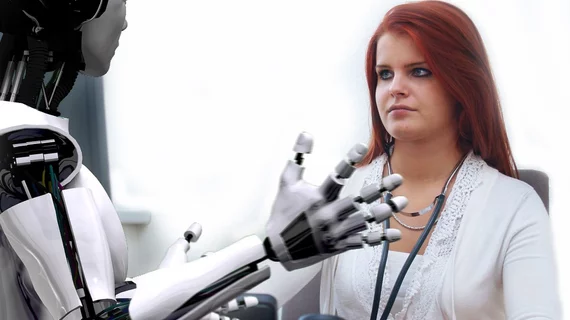Patients leery of medical AI
Healthcare consumers see AI-delivered healthcare as standardized and therefore neglectful of patients’ individual needs, which is one reason they tend to be less accepting of healthcare delivered by AI than that provided by humans.
That’s according to a study slated for print publication in the Journal of Consumer Research.
Senior researcher Carey Morewedge, PhD, of Boston University and colleagues tested their “uniqueness neglect” hypothesis across eleven published studies they systematically reviewed.
Four studies looked at consumer preferences for healthcare delivered by AI versus human providers. One looked at whether resistance to medical AI is mitigated “if an automated provider supports, rather than replaces, a human provider who remains in charge of making the critical medical decision.” Others covered various nuanced aspects germane to the hypothesis.
In a news item on the study posted Sept. 10 by NYU, where co-author Andrea Bonezzi, PhD, is an associate professor of marketing, the study’s other key findings are listed as follows:
- Patients’ willingness to pay is less for healthcare delivered by AI than by humans.
- Resistance to medical AI was eliminated when the automated provider offered additional input from a physician.
- Framing care as personalized and customizable, based on the patient’s unique attributes, appears to curb resistance to medical AI.
“Overcoming the challenge of ‘uniqueness neglect’ is a critical barrier to the adoption of consumer-facing medical AI,” says Bonezzi in the news item. “Enhancing the perceived personalization of care delivered by medical AI, and enlisting physicians to verify and endorse the recommendations of AI providers, will be key to building trust and receptivity among consumers.”
Click here to read the full study and here for the NYU news item.

